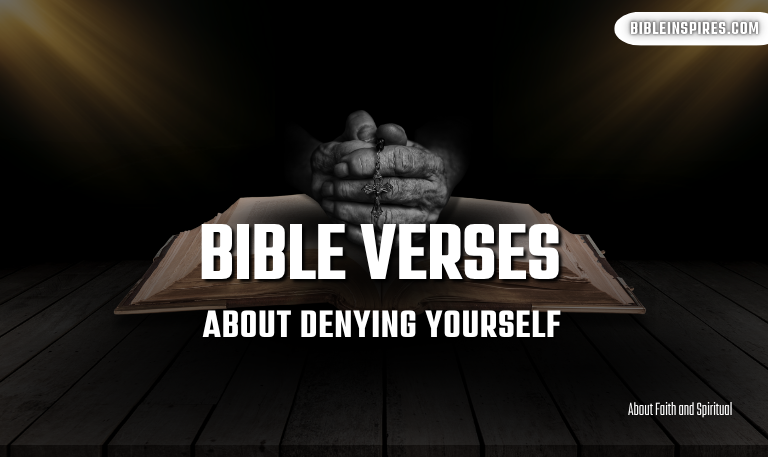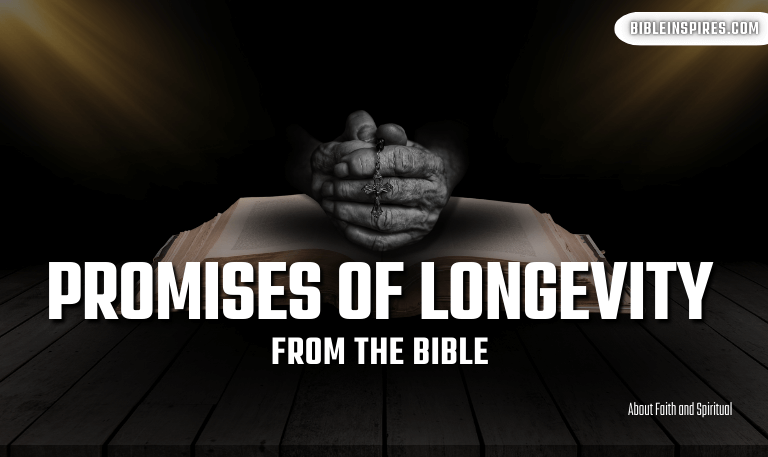Denying yourself is a profound spiritual principle woven throughout the Bible. At its core, denying yourself means surrendering personal desires, ambitions, and comforts to follow God’s will. It is a call to relinquish selfishness and live a life centered on Christ. But what exactly does the Bible say about denying yourself? How does this concept shape Christian faith and daily living? In this comprehensive guide, we will explore key Bible verses about denying yourself, unpack their meanings, and provide practical ways to embrace self-denial in your spiritual journey.
Understanding the Concept of Self-Denial in Scripture
What Is Self-Denial?
Self-denial is often misunderstood as merely giving up pleasure or enduring hardship. Biblically, it means:
Choosing God’s purpose over personal gain
Prioritizing spiritual growth above earthly desires
Submitting your will to Christ’s lordship
It is a voluntary, continual decision to put God first, even when it requires sacrifice.
The Spiritual Purpose of Denying Yourself
Denying yourself is a pathway to:
Spiritual maturity and transformation
Deepening faith and reliance on God
Participating in Christ’s sufferings and victory
As Jesus said, “Whoever wants to save their life will lose it, but whoever loses their life for me will save it” (Luke 9:24).
Denying Yourself vs. Self-Sacrifice
While related, self-denial is broader than sacrifice. Sacrifice often implies giving something specific up for a cause, whereas self-denial encompasses an ongoing lifestyle of humility and surrender.
Read Also: Bible Verses About Emotions
Key Bible Verses About Denying Yourself
1. Matthew 16:24 (NIV)
“Then Jesus said to his disciples, ‘Whoever wants to be my disciple must deny themselves and take up their cross and follow me.'”
This foundational verse encapsulates the call to self-denial as integral to discipleship. Taking up the cross symbolizes willingness to suffer and surrender personal agendas for Christ.
2. Luke 9:23 (ESV)
“And he said to all, ‘If anyone would come after me, let him deny himself and take up his cross daily and follow me.'”
The word “daily” emphasizes that self-denial is not a one-time act but a continuous choice.
3. Mark 8:34 (NIV)
“Whoever wants to be my disciple must deny themselves and take up their cross and follow me.”
Reiterates the necessity of denying self in the journey of following Jesus.
4. Galatians 5:24 (NIV)
“Those who belong to Christ Jesus have crucified the flesh with its passions and desires.”
This verse highlights the ongoing battle against sinful nature, which is central to biblical self-denial.
5. Romans 12:1 (NIV)
“Therefore, I urge you, brothers and sisters, in view of God’s mercy, to offer your bodies as a living sacrifice, holy and pleasing to God—this is your true and proper worship.”
Presenting ourselves as living sacrifices is the practical outworking of self-denial.
6. Philippians 2:3-4 (NIV)
“Do nothing out of selfish ambition or vain conceit. Rather, in humility value others above yourselves, not looking to your own interests but each of you to the interests of the others.”
Self-denial expresses itself in humility and putting others first.
7. 2 Corinthians 5:15 (NIV)
“And he died for all, that those who live should no longer live for themselves but for him who died for them and was raised again.”
Living not for oneself but for Christ captures the heart of self-denial.
Bible Verses About Self-Denial
These verses, often less cited, deepen the understanding of self-denial.
John 12:24-26 — Losing your life to find eternal life.
Colossians 3:5 — Put to death earthly desires.
Hebrews 12:1-2 — Running the race with endurance and discipline.
1 Corinthians 9:27 — Discipline your body to avoid disqualification.
James 4:7 — Submit to God, resist the devil.
The Role of Self-Denial in Christian Discipleship
How Self-Denial Shapes a Disciple’s Life
Self-denial is the foundation of true discipleship. It means:
Letting go of control
Following Jesus’ example
Embracing sacrifice for the sake of the Gospel
Jesus as the Ultimate Model of Self-Denial
Jesus’ life exemplifies perfect self-denial—from leaving heaven’s glory (Philippians 2:6-8) to suffering on the cross for humanity’s salvation.
Practical Applications of Denying Yourself Today
How to Practice Self-Denial Daily
Pray for strength and guidance
Fast or abstain from certain pleasures intentionally
Serve others with humility
Resist temptations through Scripture memorization
Choose obedience over comfort
Balancing Self-Denial and Self-Care
Self-denial isn’t self-neglect. Scripture calls for wise stewardship of the body and mind (1 Corinthians 6:19-20).
Common Misconceptions About Denying Yourself
Denying yourself means being miserable — False. It leads to joy (John 15:11).
Self-denial is legalism — False. It’s an act of grace and freedom, not law.
Self-denial requires giving up everything material — Not always. It’s about the heart’s posture.
Testimonies and Biblical Examples of Self-Denial
Paul’s hardships: Paul endured prison and persecution while spreading the Gospel.
Early Christians: Lived sacrificial lives for the sake of Christ and community.
Read Also: Bible Verses About Abundance
The Blessings and Rewards of Self-Denial
Spiritual Rewards
Closer intimacy with God
Greater peace and joy
Strength to overcome sin
Eternal Rewards
Promise of eternal life (Matthew 19:29)
Crowns of righteousness and glory (2 Timothy 4:8)
Bible Verses for Meditation and Reflection on Self-Denial
Consider journaling or meditating on these passages daily:
Matthew 16:24
Philippians 2:3-4
Romans 12:1
Galatians 5:24
Bible Verses About Denying Yourself FAQs
Q: What Does the Bible Say About Denying Yourself?
A: The Bible teaches that denying yourself is essential to follow Christ, involving surrendering personal desires and embracing God’s will.
Q: Why Is Denying Yourself Important for Christians?
A: It fosters spiritual growth, helps resist sin, and aligns believers with Christ’s example.
Q: How Do You Deny Yourself According to the Bible?
A: By daily choosing God’s will over personal preferences, practicing humility, and taking up your cross.
Q: Is Denying Yourself the Same as Sacrifice?
A: Denying yourself is broader, encompassing a lifestyle of surrender; sacrifice is a part of it.
Q: Can Denying Yourself Be Harmful?
A: When misunderstood as self-neglect, yes. But biblically, it balances with stewardship of the body.
Q: How Does Self-Denial Relate to Jesus’ Teachings?
A: Jesus taught self-denial as a path to discipleship and eternal life.
Q: What Are Some Practical Ways to Deny Yourself?
A: Prayer, fasting, serving others, resisting temptation, and living humbly.
Q: How Does Self-Denial Affect My Relationship with God?
A: It deepens intimacy, dependence, and obedience.
Q: Is Denying Yourself Required for Salvation?
A: Salvation is by grace through faith, but self-denial is part of living out that faith.
Q: Can Denying Yourself Help with Temptation?
A: Yes, it strengthens willpower and reliance on God.
Conclusion
Denying yourself is not merely a call to sacrifice or self-denial for its own sake — it is a profound invitation to step into the abundant life Jesus promises. Through the powerful Bible verses explored, we see that self-denial is central to authentic discipleship, spiritual growth, and a life fully surrendered to God’s purpose.

![Top 10 Bible Verses About Brotherhood and Love [Explained] 3 Top-10-Bible-Verses-About-Brotherhood-and-Love-[Explained]](https://bibleinspires.com/wp-content/uploads/2025/04/Top-10-Bible-Verses-About-Brotherhood-and-Love-Explained.png)
![11+ Bible Verses About God and Nature [2025] 4 11+-Bible-Verses-About-God-and-Nature-[2025]](https://bibleinspires.com/wp-content/uploads/2025/04/11-Bible-Verses-About-God-and-Nature-2025.png)
